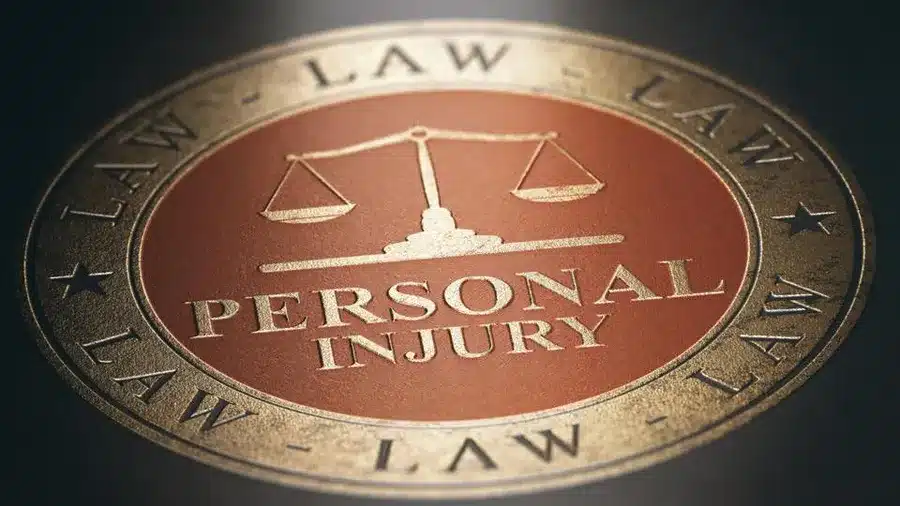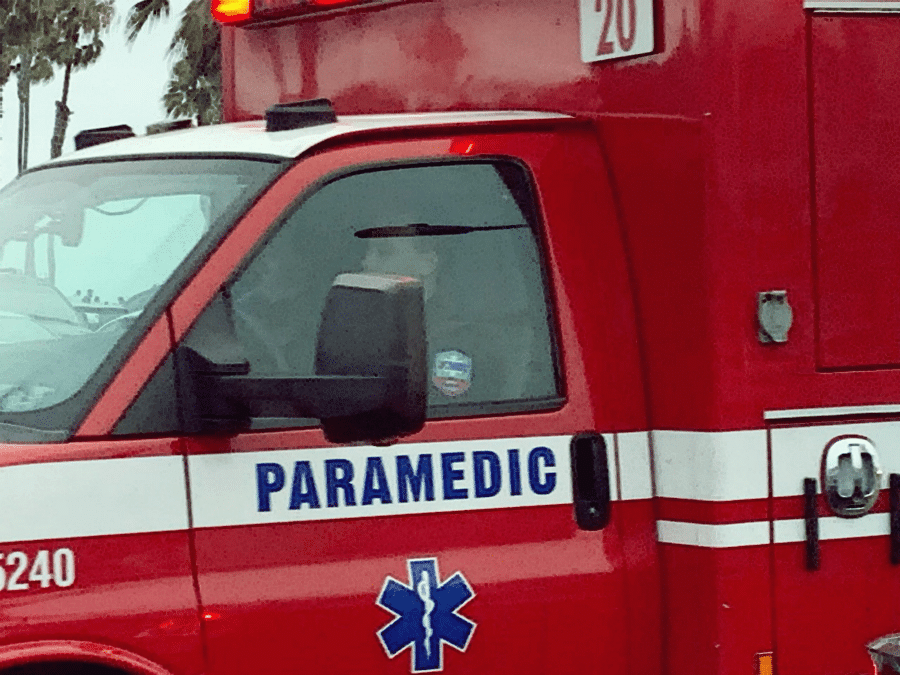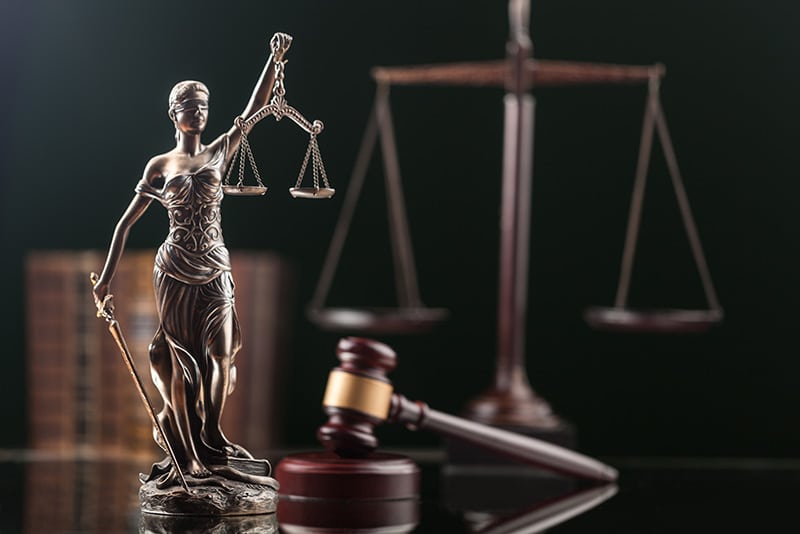In a world where accidents and injuries can happen at any time, having a personal injury lawyer by your side can make all the difference. Personal injury lawyers are legal professionals who specialize in representing individuals who have been injured due to the negligence or wrongdoing of others. From car accidents to workplace injuries, slip and falls to medical malpractice, personal injury lawyers are equipped with the knowledge and expertise to navigate the complexities of the legal system on your behalf. But what exactly can they do for you? In this comprehensive guide, we will delve into everything you need to know about personal injury lawyers and how they can help you. We will explore the different types of personal injury cases they handle, the steps involved in pursuing a claim, and the importance of seeking legal representation. So, whether you’ve recently been injured or simply want to be prepared for any unforeseen circumstances, join us as we uncover the invaluable role of personal injury lawyers and how they can ensure your rights are protected and justice is served.
A personal injury lawyer, also known as a personal injury attorney, is a legal professional who must have passed the State Bar and provides legal representation to individuals who have been injured physically, emotionally, or psychologically as a result of the negligence or wrongdoing of another party. Personal injury lawyers specialize in tort law, which encompasses civil cases where one party seeks compensation for the harm they have suffered.
The primary role of a personal injury lawyer is to advocate for their clients and help them navigate the legal process to ensure they receive maximum compensation for their injuries as a result of someone else’s negligence. They handle a wide range of personal injury cases, including but not limited to:
- Car accidents:
Representing individuals injured in automobile accidents caused by negligence, such as reckless driving or drunk driving.
- Slip and fall accidents:
Assisting individuals who have suffered injuries due to hazardous conditions on someone else’s property, such as uneven walkways, wet floors, or inadequate maintenance.
- Medical malpractice:
Representing patients who have been harmed due to negligence or errors by healthcare professionals, including doctors, nurses, or hospitals.
- Product liability:
Handling cases where individuals have been injured or harmed by defective or dangerous products, such as faulty machinery, contaminated food, or unsafe medications.
- Workplace accidents:
Assisting workers who have been injured on the job and seeking compensation through workers’ compensation claims or personal injury lawsuits if third-party negligence is involved.
Types of Personal Injury Cases
Personal injury lawyers handle a wide range of cases, each unique in its own way. One of the most common types of personal injury cases is car accidents. Whether you were a driver, passenger, or pedestrian, if you were injured in a car accident due to someone else’s negligence, a personal injury lawyer can help you navigate the legal process and seek compensation for your injuries. Slip and falls are another common type of personal injury case. These accidents can happen anywhere, from a grocery store to a restaurant or even a private property. Personal injury lawyers can help you determine if negligence played a role in your fall and assist you in holding the responsible party accountable. Workplace injuries are also a frequent occurrence, and personal injury lawyers can help you file a workers’ compensation claim or pursue a personal injury lawsuit if your employer or a third party is at fault. Other types of personal injury cases include medical malpractice, product liability, dog bites, and wrongful death.
When it comes to personal injury cases, it’s important to understand that each case is unique, and the specific details of your situation will determine the legal strategies and remedies available to you. That’s why it’s crucial to consult with a personal injury lawyer who specializes in the type of case you’re dealing with. They have the experience and knowledge necessary to assess the merits of your case, gather evidence, negotiate with insurance companies, and represent your best interests in court if necessary.
Why Hiring a Personal Injury Lawyer is Important
You may be wondering if hiring a personal injury lawyer is really necessary. After all, you can always file a claim on your own, right? While it’s true that you have the option to represent yourself, it’s not recommended, and here’s why.
First and foremost, personal injury lawyers have a deep understanding of the legal system, including the laws and regulations that apply to your case. They are well-versed in the intricacies of personal injury law and have the expertise to navigate the complex legal processes involved in pursuing a claim. This knowledge and experience can be invaluable in ensuring that your rights are protected and that you receive the compensation you deserve.
Secondly, personal injury lawyers have access to a vast network of resources that can greatly benefit your case. They have relationships with medical experts who can provide professional opinions on your injuries and their impact on your life. They also have access to accident reconstruction specialists who can help determine liability in complex cases. These resources can strengthen your case and increase your chances of a successful outcome.
Lastly, personal injury lawyers are skilled negotiators. Insurance companies are notorious for trying to minimize settlements or deny claims altogether. Personal injury lawyers know the tactics used by insurance companies and can level the playing field. They will fight for your rights and negotiate on your behalf to ensure that you receive fair and just compensation.
In summary, hiring a personal injury lawyer is important because they have the expertise, resources, and negotiation skills necessary to navigate the legal system on your behalf and maximize your chances of a successful outcome.

How Personal Injury Lawyers Can Help You
Personal injury lawyers provide a wide range of services to help you throughout the entire legal process. From the moment you hire them, they will guide you through the necessary steps to pursue your claim. Here’s how they can help you:
1. **Case Evaluation**: Personal injury lawyers will evaluate the merits of your case and determine if you have a valid claim. They will review the evidence, assess liability, and estimate the potential value of your case.
2. **Investigation and Evidence Gathering**: Personal injury lawyers will conduct a thorough investigation to gather evidence to support your claim. This may include obtaining accident reports, medical records, witness statements, and any other relevant documentation.
3. **Legal Strategy**: Personal injury lawyers will develop a legal strategy tailored to your specific case. They will identify the parties responsible for your injuries and determine the best course of action to maximize your chances of success.
4. **Negotiations**: Personal injury lawyers will negotiate with insurance companies and other parties involved in your case. They will fight for a fair settlement that covers your medical expenses, lost wages, pain and suffering, and any other damages you may be entitled to.
5. **Litigation**: If a fair settlement cannot be reached, personal injury lawyers are prepared to take your case to court. They will represent you during the litigation process, presenting your case before a judge and jury, and advocating for your rights.
Throughout the entire process, personal injury lawyers will keep you informed and provide guidance every step of the way. They understand the physical, emotional, and financial toll that an injury can have on your life, and they are committed to helping you get the compensation you deserve.
Understanding the Legal Process in Personal Injury Cases
Personal injury cases typically follow a similar legal process, although the exact steps may vary depending on the jurisdiction and the specific circumstances of your case. Here is a general overview of what you can expect:
1. **Consultation**: The first step is to schedule a consultation with a personal injury lawyer. During this initial meeting, you will discuss the details of your case, including how the injury occurred, the extent of your injuries, and any potential parties at fault. The lawyer will evaluate the merits of your case and advise you on the next steps.
2. **Investigation**: Once you decide to move forward with your claim, the lawyer will begin the investigation process. This may involve gathering evidence, interviewing witnesses, obtaining medical records, and consulting with experts.
3. **Demand and Negotiation**: After completing the investigation, your lawyer will draft a demand letter outlining your injuries, damages, and the compensation you are seeking. This letter will be sent to the responsible parties, typically their insurance companies. The negotiation process begins, with your lawyer advocating for a fair settlement.
4. **Filing a Lawsuit**: If a fair settlement cannot be reached, your lawyer may recommend filing a lawsuit. This involves preparing and filing legal documents, known as the complaint, with the appropriate court. The responsible parties will be served with the complaint, and the litigation process begins.
5. **Discovery**: During the discovery phase, both parties exchange information and evidence related to the case. This may include written questions, known as interrogatories, requests for documents, and depositions, where witnesses provide sworn testimony.
6. **Mediation and Settlement Conference**: Before going to trial, the court may require the parties to participate in mediation or a settlement conference. These are opportunities for both sides to try to reach a resolution without the need for a trial. A neutral third party, known as a mediator, facilitates the discussion and helps the parties find common ground.
7. **Trial**: If a settlement cannot be reached, the case will proceed to trial. Your lawyer will present your case before a judge and jury, including presenting evidence, calling witnesses, and making legal arguments. The jury will then decide whether the responsible party should be held liable and, if so, the amount of compensation you should receive.
8. **Post-Trial Motions and Appeals**: After a verdict is reached, either party may file post-trial motions or appeal the decision if they believe there were errors in the legal process. Your lawyer will advise you on the best course of action based on the outcome of the trial.
9. **Resolution**: Once all legal avenues have been exhausted, your case will come to a resolution. This may involve receiving a settlement or court-awarded damages. Your lawyer will ensure that all necessary paperwork is completed, and you receive the compensation you are entitled to.
It’s important to note that personal injury cases can be complex and time-consuming. Having a personal injury lawyer by your side ensures that you have an experienced advocate who will navigate the legal process on your behalf and fight for your rights every step of the way.
Factors to Consider When Choosing a Personal Injury Lawyer
Choosing the right personal injury lawyer is crucial to the success of your case. Here are some key factors to consider when making your decision:
1. **Experience**: Look for a lawyer who specializes in personal injury cases and has a proven track record of success. Experience in handling cases similar to yours is particularly important.
2. **Reputation**: Research the lawyer’s reputation in the legal community and among their past clients. Read reviews and testimonials, and consider any awards or recognitions they have received.
3. **Resources**: Consider the resources that the lawyer and their firm have at their disposal. This includes access to experts, investigators, and other professionals who can support your case.
4. **Communication**: Effective communication is essential in any attorney-client relationship. Choose a lawyer who is responsive, communicates clearly, and keeps you informed throughout the process.
5. **Fees**: Discuss the lawyer’s fee structure and payment options during your initial consultation. Many personal injury lawyers work on a contingency fee basis, meaning they only get paid if they win your case. This can be advantageous if you’re concerned about upfront costs.
6. **Compatibility**: Trust your instincts and choose a lawyer with whom you feel comfortable. Personal injury cases can be lengthy, so it’s important to have a good working relationship with your lawyer.
7. **Location**: Consider the location of the lawyer’s office and whether they are familiar with the local courts and laws. Local knowledge can be an advantage in personal injury cases.
Remember, this is not an exhaustive list, and you should consider any other factors that are important to you when selecting a personal injury lawyer. Take your time, do your research, and choose wisely.
Questions to Ask During an Initial Consultation with a Personal Injury Lawyer
The initial consultation with a personal injury lawyer is an opportunity for you to ask questions and assess whether they are the right fit for your case. Here are some questions to consider asking:
1. **How long have you been practicing personal injury law?**: Experience is important, so find out how long the lawyer has been handling personal injury cases and whether they have experience with cases similar to yours.
2. **What is your success rate?**: Ask about the lawyer’s track record in handling personal injury cases. Inquire about past settlements and verdicts they have obtained for their clients.
3. **How will you communicate with me?**: Communication is key, so make sure you understand how the lawyer will keep you informed about the progress of your case. Ask how quickly they typically respond to client inquiries.
4. **Will you be handling my case personally?**: Some law firms assign cases to junior attorneys or paralegals. If having the lawyer personally handle your case is important to you, clarify this during the consultation.
5. **What is your fee structure?**: Discuss the lawyer’s fee structure and payment options. Ask about any upfront costs, contingency fees, or additional expenses you may be responsible for.
6. **What is your assessment of my case?**: Provide the lawyer with the details of your case and ask for their initial assessment. Inquire about the strengths and weaknesses of your case and the potential outcomes.
7. **How long do you anticipate my case will take?**: While it’s impossible to predict the exact duration of a case, the lawyer should be able to provide a rough estimate based on their experience.
8. **Can you provide references from past clients?**: If you would like to speak with past clients to get a better understanding of the lawyer’s capabilities and client satisfaction, don’t hesitate to ask for references.
These questions will help you gather important information about the lawyer’s experience, communication style, and approach to personal injury cases. Remember to take notes during the consultation and trust your instincts when making your decision.
Personal Injury Lawyer Fees and Payment Options
One of the concerns many people have when considering hiring a personal injury lawyer is the cost. However, most personal injury lawyers work on a contingency fee basis. This means that they only get paid if they win your case, and their fees are a percentage of the compensation you receive.
Contingency fees typically range from 33% to 40% of the total settlement or court-awarded damages. The exact percentage may vary depending on the complexity of your case, the stage at which it is resolved, and the agreement you reach with your lawyer.
Working on a contingency fee basis has several advantages. First and foremost, it allows individuals who may not have the financial means to hire a lawyer upfront to still have access to legal representation. It also aligns the interests of the lawyer and the client, as both parties are motivated to achieve the highest possible compensation.
During your initial consultation, be sure to discuss the fee structure and payment options with the lawyer. They should provide you with a clear explanation of how fees are calculated and deducted from your settlement or court-awarded damages. Ask about any additional expenses you may be responsible for, such as court filing fees or expert witness fees.
If you have concerns about the financial aspect of hiring a personal injury lawyer, don’t hesitate to discuss them openly. Many lawyers offer free initial consultations, during which they can assess the merits of your case and provide you with an estimate of the potential compensation you may be entitled to. This can help you make an informed decision about whether pursuing a claim is worth it for you.












